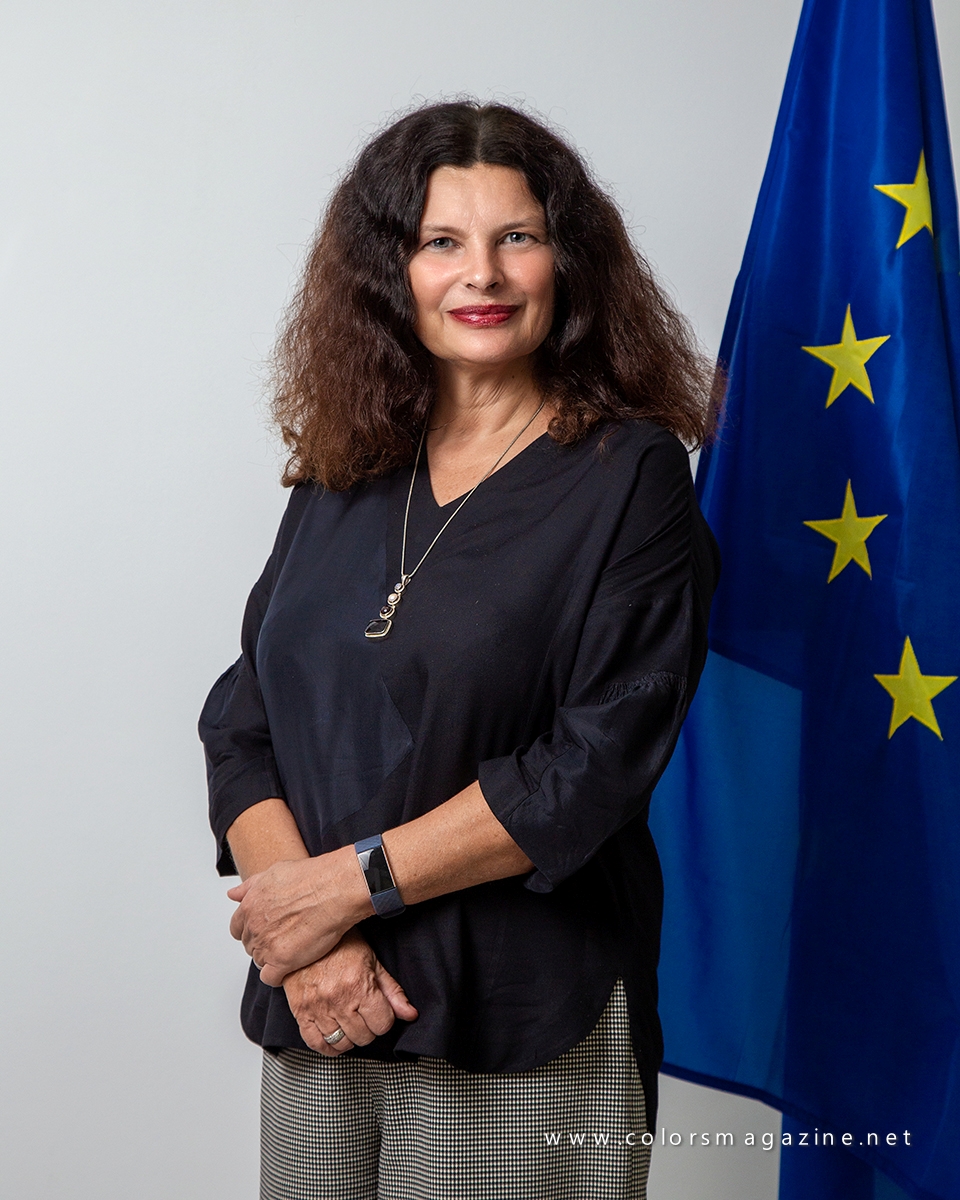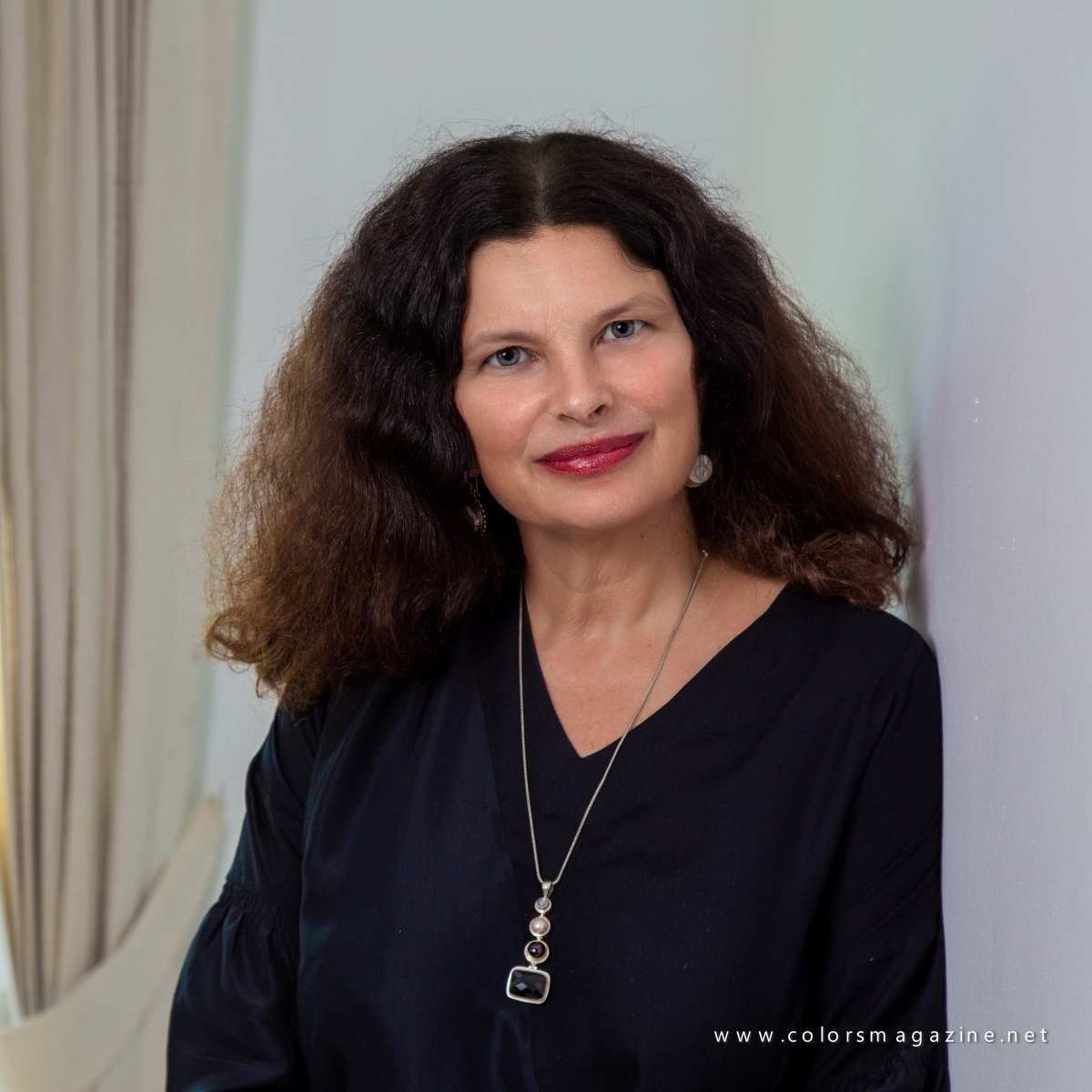Discovering Art and Hilsha
Ambassador Rensje Teerink came to Bangladesh two years ago with a luggage of perception mostly negative about the country. But in the course of two years, she discovered a place different from the picture she had in mind–full of hospitable people, seeing the empowerment of women, tasting a snack like fuchka and fish like hilsha, and viewing rich artworks. In an exclusive interview with Colors Advisory Editor Ziaul Karim, the European Union’s Head of Delegation to Bangladesh talks about rebranding Bangladesh to the world as a resilient country, a country making good use of global opportunities coming its way, and a country with a vibrant art scene.

As a young officer of the European Commission headquartered in Brussels, Belgium, Rensje Teerink first came to Bangladesh in the late 1990s. She had visited a European Union-supported project site in Mymensingh and witnessed the beauty of Bangladeshi villages then. Before joining her current position, she had been posted in Nepal. Already familiar with South Asia and Bangladesh by this time, Ambassador Teerink was amazed at the transformation of Dhaka and some other parts of the country. ‘When I came back to the city, I found Gulshan unrecognizable … at one time, it was mainly bungalows… it was easy to live – everything was green, but the changes are very dramatic,’ she observes.
Ambassador Teerink is fond of Bangladeshi foods; she takes fuchka often and savors hilsha even when they are cooked with a lot of spices.
During the interview, the ambassador expressed her views on Bangladesh’s development candidly; commenting freely on what she thinks is suitable for Bangladesh and its people. Issues such as traffic congestion, air pollution and river pollution can have homegrown solution, she stresses, noting how everyone needs to make some efforts to bring changes instead of waiting only for the government to streamline everything. She cites the example of the rise in the use of bikes in Brussels and points out that Dhakaites can do something to help in their own development. ‘If more people do take up cycling, for instance, infrastructure will follow. If it can be done in Brussels, why not in Dhaka?’
‘What’s development all about? A poor person buying a car and a rich person volunteering to travel by public transport! It’s two-way process. For me, real development is changes we initiate ourselves,’ she says spelling out her thoughts. ‘Personal changes are important.’
Although appreciating Bangladesh’s high economic growth and noting that it has been 7-8 per cent over a long period, the EU Ambassador wonders out loud how long such a growth rate will be sustainable. She points towards the struggle of the country’s main exportable readymade garments sector following the Rana Plaza tragedy in 2013. She notes how some factories are now completely compliant while others have been closing in recent times. In Europe, the largest destination of Bangladeshi apparel products, she points out, the dominant concern: ‘whatever is sourced from Bangladesh, should be produced in a safe environment.’

The diplomat feels that Bangladesh has good prospects of exporting food items as well, if food safety and hygiene issues are addressed properly. She also emphasizes diversification of exports, observing that the process has started already. Dwelling on Bangladesh’s capacity, she explains that out of 45 least developed countries, Bangladesh alone has captured two-thirds of trade concessions under the EU’s Everything But Arms (EBA) facility. Bangladesh exported garments worth 18 billion Euros a year and saved 2 billion Euros of tariff thereby recently. ‘Bangladesh is a textbook case of grabbing this advantage,’ she declares.
On possible loss of such privilege, once Bangladesh attains the status of a middle income country by 2024, she points out that the country will have a three year grace period and a couple of years for EBA. ‘We will be reviewing the instrument. Bangladesh can apply for the GSP plus (Generalized System of Preference) facility… We need to see certain criteria being met. GSP plus conditions will be stricter in terms of human rights and environmental protection,’ she notes.
Asked if Bangladesh will fall into middle income trap, the European diplomat mentions about skilling of people as the panacea for moving to higher stage of development, making use of the demographic dividend and exporting more adept manpower abroad for earning better.
She comes up with a host of recommendations such as addressing air pollution as a national emergency concern, saving the Meghna river from pollution caused by indiscriminate industrialization on its banks, and protecting the Sundarbans from the coal-fired power plant being set up in its immediate vicinity.
The diplomat also informs Colors that the EU is working with the government of Bangladesh on a number of projects focusing on improving governance, public financial management and enabling people’s access to justice easily. ‘Village courts are fantastic for justice of local people. Women can now have access to justice and this helps reduce backlog in courts.’ About the investment climate in Bangladesh, she says, many companies from Europe will be interested in investing in Bangladesh if the government can improve ease of doing business.
The EU Ambassador feels that Bangladesh needs to rebrand itself in the international arena. ‘People from outside see Bangladesh only in the light of the Rohingya crisis, floods and endemic poverty. But once they are familiar with this country they say, ‘No, it is different kind of picture altogether from up close’,’ she observes, citing the example of a local football club that has a female coach training male footballers.
She refers to the music and poetry she found everywhere and appreciates efforts like the LitFest for introducing Bangladesh to the outside world with a different set of images. An aesthete, she is soon going have the walls of her office decorated with rickshaw painting. ‘Also, art is something I have discovered here. That too I feel can help rebrand Bangladesh.’




